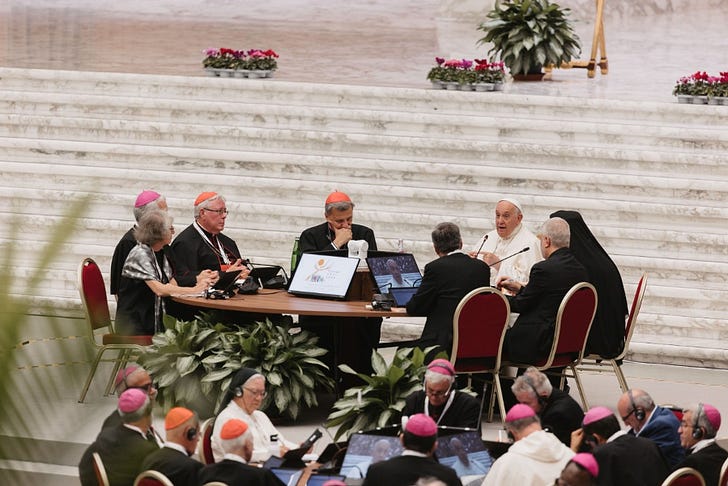Synod report proposes ways to foster synodal Church
The 42-page text makes a host of potentially far-reaching suggestions.
Participants in the synod on synodality endorsed a report Saturday proposing potentially far-reaching changes to foster a synodal Church.

The 42-page “synthesis report” — “A synodal Church in mission” — summarized discussions at the first session of the XVI Ordinary General Assembly of the Synod of Bishops, as the synod on synodality is formally known. …
